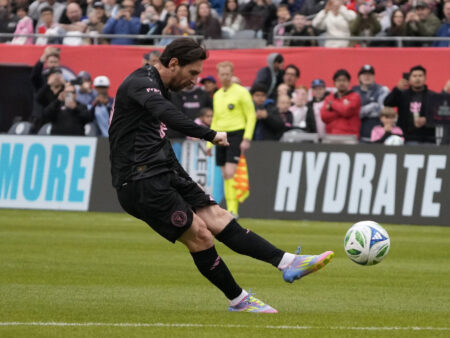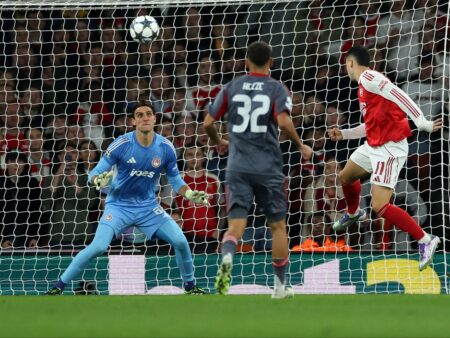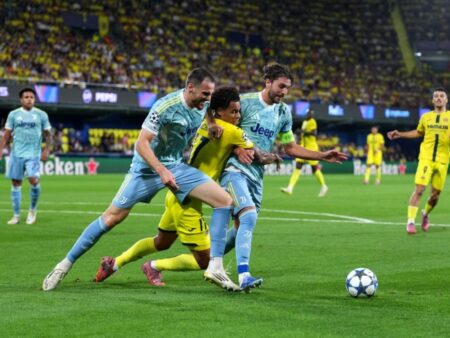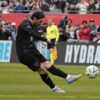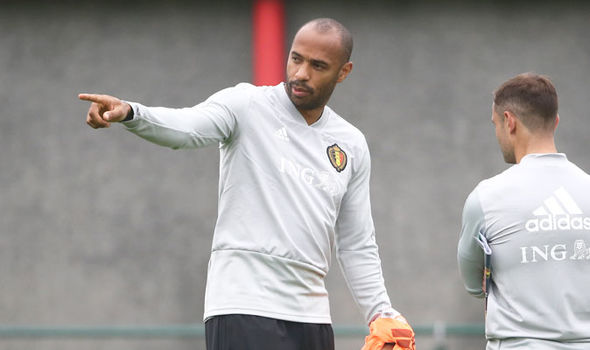
Football legend Thierry Henry has urged FIFA and UEFA to initiate a direct and meaningful dialogue with active players regarding the escalating problem of fixture congestion, which consistently raises significant concerns about player well-being.
The modern football calendar sees many players participating in an astonishing 60 to 70 matches per season. This demanding schedule not only compromises their effectiveness during the club season but also detrimentally affects their peak performance for national teams in major tournaments. Henry, drawing on his own career, noted that while he didn`t play quite as many games, he still experienced the physical and mental toll of extended seasons.
Speaking on the UEFA Champions League Today pre-match show, Henry reflected on his own experiences: “I faced similar challenges, though perhaps not with the sheer volume of games players endure today. I often reached major tournaments utterly exhausted, both mentally and physically. For instance, I arrived injured for the 2002 World Cup, Euro 2004, and Euro 2008. I was merely there to play, without adequate preparation. One needs proper preparation to perform at the elite level in such competitions, and this wasn`t just my experience, but that of many players.”
The CBS Sports commentator emphasized that while ex-players offer valuable insights, the current realities of the game mean that active players are best positioned to articulate the issues and co-create solutions.
Henry clarified his stance: “My view is straightforward. This isn`t about mere complaints, or debating player salaries. It`s about fostering a genuine, educational discussion with the current players` union – a truly constructive one. Don`t engage former players like myself; I`m no longer active and can`t fully grasp the contemporary challenges. My knowledge is historical. Instead, engage with those currently in the thick of it, like Virgil van Dijk or Mo Salah. Sit down with them, have a direct conversation. They are the key stakeholders today.”
Fellow analyst Jamie Carragher echoed Henry`s sentiments, highlighting that governing bodies persistently explore expanding the football calendar. He noted CONMEBOL`s recent, though unconsidered by FIFA, proposal for a 64-team World Cup in 2030, and other recurrent, yet unformalized, suggestions for biennial World Cups or Club World Cups.
Carragher warned, “The current trajectory isn`t going to be reversed simply by our discussions. Thierry is correct; it might eventually require the world`s top players to unite, declare `enough is enough,` and collectively refuse to participate.”
Both Henry and Carragher specifically pointed to competitions like the UEFA Nations League, introduced in September 2018, and FIFA`s revamped Club World Cup, held last summer in the U.S., as examples of tournaments that exacerbate the fixture overload issue.
Carragher asserted, “The UEFA Nations League was an unnecessary addition, as was FIFA`s new Club World Cup. There was no public demand for these tournaments. They were simply introduced to generate more revenue, clearly demonstrating the motivation behind the increasing number of games.”
Henry confessed he barely followed the Club World Cup.
“As a football enthusiast, I feel fatigued,” Henry remarked. “I didn`t even watch the Club World Cup; I had other commitments during the final and left at halftime. It`s simply too much. I cherish my family and, like anyone, need a break occasionally. While I adore football, candidly, who genuinely watched it all? Too much is simply too much, despite my passion for the game.”
Henry further highlighted the financial burden placed on fans by the proliferation of official competitions.
He questioned the economic sustainability for supporters: “How much more can fans afford? Consider the expense of attending the Nations League, the Champions League, the two English domestic cups, and then purchasing team merchandise.”
The World Cup champion urged today`s players “to be resolute and outspoken” on the matter, believing this is crucial for instigating significant change.
Henry concluded, “As former players, we lack the authority to enact change and are not in decision-making roles. We can discuss great ideas and solutions endlessly, but ultimately, the only individuals who can truly alter their fate are the players themselves.”
